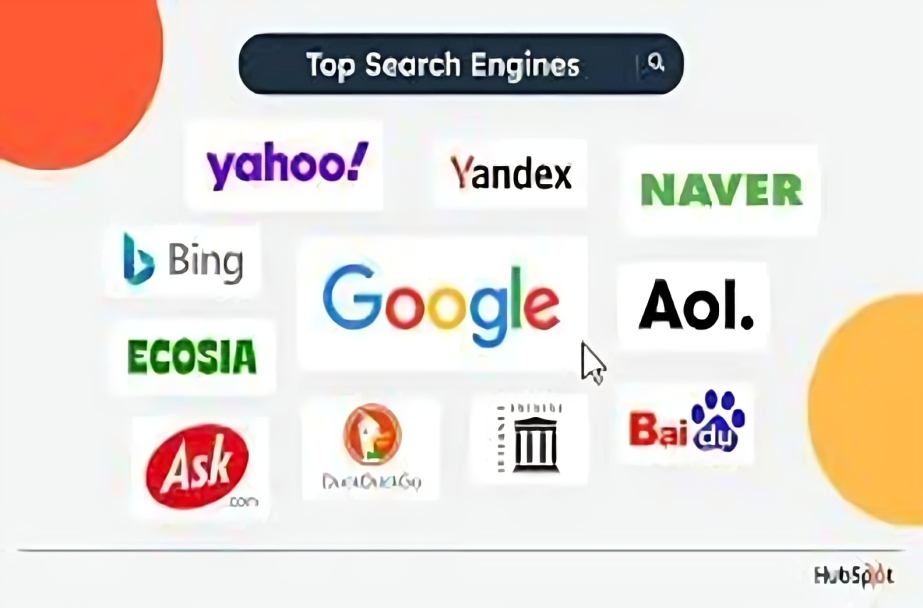When delving into the realm of search engines, the name that consistently surfaces is Google. As of January 2024, Google continues to dominate as the foremost search engine, commanding an impressive 81% of the market share. The universal favor toward Google can be attributed to its ability to deliver swift and accurate search results, driven by advanced algorithms adept at processing extensive data sets.
Nevertheless, Google doesn’t hold a monopoly in the search engine landscape. Various alternative search engines are gaining momentum across diverse industries. In this discussion, we’ll delve into 11 prominent search engines worldwide, shedding light on areas where businesses can channel their optimization efforts in 2024, ultimately seeking to harness the honey money potential in the evolving digital landscape.
Google continues to dominate the search market, thanks to its efficient search algorithms that provide users with relevant results quickly. Features like knowledge panels, People Also Ask sections, and featured snippets enhance user experience on Google’s search engine results pages (SERPs).
- Bing
Owned and operated by Microsoft, Bing is the second-largest search engine globally, capturing over 10% of the market share. Similar to Google, Bing categorizes search results into tabs such as images, videos, maps, and news. It also offers a rewards program to incentivize user engagement.
- Yahoo!
- Once a prominent search engine, Yahoo! now functions more as a web portal featuring diverse content, including news, weather forecasts, and trending stories. Yahoo! is powered by Bing, resulting in similar search results between the two engines.
- Yandex
While not as well-known outside of Russia, Yandex is the most popular search engine in the country, commanding nearly 2% of the global search market share. Yandex uses various metrics, including site quality index (SQI), to evaluate website relevance and prioritize search results.
- Baidu
Being the primary search engine in China, Baidu has witnessed substantial expansion in recent times, outstripping competitors in market dominance. While its interface mirrors that of Google, it is customized for Mandarin-speaking users, rendering it indispensable for enterprises eyeing the Asian market.
- DuckDuckGo
DuckDuckGo stands out as a privacy-focused search engine gaining popularity among users concerned about data privacy. It pulls search results from multiple sources, excluding Google’s data, thereby necessitating diverse SEO strategies for optimization.
- Ask
Originally launched as Ask Jeeves, Ask provides a question-and-answer service, aiming to act as a virtual concierge for users. While it once competed in the search engine market, Ask now relies on Google for its search results.
- Naver
Naver is South Korea’s second most popular search engine, with a significant focus on local Korean content. Its specialized features cater to the preferences of South Korean users, making it crucial for businesses targeting this market.
- AOL
AOL, now owned by Yahoo!, utilizes Bing’s search results and forms part of the Bing search network. Advertisers can leverage AOL’s platform, along with Yahoo! and Bing, to promote their campaigns and reach a broader audience.
- Internet Archive
Unlike traditional search engines, the Internet Archive focuses on preserving and sharing content rather than ranking it. Its WayBackMachine allows users to view historical snapshots of websites, making it a valuable resource for researching web history.
- Ecosia
Based in Germany, Ecosia is a unique search engine that uses advertising revenue to fund tree planting initiatives worldwide. Users can contribute to environmental conservation simply by using the search engine, making it an attractive option for eco-conscious individuals.
Optimizing Your Site for Top Search Engines
Effective optimization involves tailoring your strategies to align with the focus of each search engine. Whether targeting a global audience on Google or catering to privacy-conscious users on DuckDuckGo, understanding the nuances of each platform is essential for SEO success.
By embracing the diversity of search engines and adapting your optimization efforts accordingly, you can establish a strong foundation for generating organic traffic to your website.

